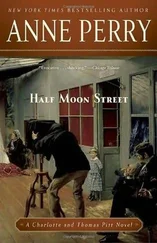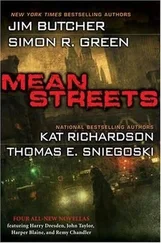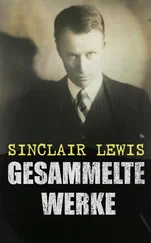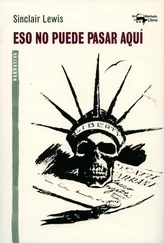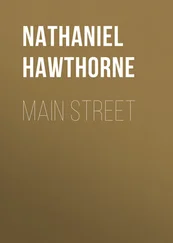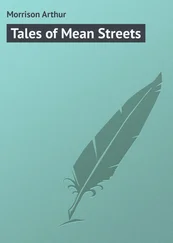Sinclair Lewis - Main Street
Здесь есть возможность читать онлайн «Sinclair Lewis - Main Street» — ознакомительный отрывок электронной книги совершенно бесплатно, а после прочтения отрывка купить полную версию. В некоторых случаях можно слушать аудио, скачать через торрент в формате fb2 и присутствует краткое содержание. Жанр: unrecognised, на английском языке. Описание произведения, (предисловие) а так же отзывы посетителей доступны на портале библиотеки ЛибКат.
- Название:Main Street
- Автор:
- Жанр:
- Год:неизвестен
- ISBN:нет данных
- Рейтинг книги:3 / 5. Голосов: 1
-
Избранное:Добавить в избранное
- Отзывы:
-
Ваша оценка:
- 60
- 1
- 2
- 3
- 4
- 5
Main Street: краткое содержание, описание и аннотация
Предлагаем к чтению аннотацию, описание, краткое содержание или предисловие (зависит от того, что написал сам автор книги «Main Street»). Если вы не нашли необходимую информацию о книге — напишите в комментариях, мы постараемся отыскать её.
libreka classics – These are classics of literary history, reissued and made available to a wide audience.
Immerse yourself in well-known and popular titles!
Main Street — читать онлайн ознакомительный отрывок
Ниже представлен текст книги, разбитый по страницам. Система сохранения места последней прочитанной страницы, позволяет с удобством читать онлайн бесплатно книгу «Main Street», без необходимости каждый раз заново искать на чём Вы остановились. Поставьте закладку, и сможете в любой момент перейти на страницу, на которой закончили чтение.
Интервал:
Закладка:
Two minutes later—two hectic minutes—they were disturbed by an embarrassed couple also seeking the idyllic seclusion of the overshoe-closet.
After graduation she never saw Stewart Snyder again. She wrote to him once a week—for one month.
VI
A year Carol spent in Chicago. Her study of library-cataloguing, recording, books of reference, was easy and not too somniferous. She reveled in the Art Institute, in symphonies and violin recitals and chamber music, in the theater and classic dancing. She almost gave up library work to become one of the young women who dance in cheese-cloth in the moonlight. She was taken to a certified Studio Party, with beer, cigarettes, bobbed hair, and a Russian Jewess who sang the Internationale. It cannot be reported that Carol had anything significant to say to the Bohemians. She was awkward with them, and felt ignorant, and she was shocked by the free manners which she had for years desired. But she heard and remembered discussions of Freud, Romain Rolland, syndicalism, the Confederation Generale du Travail, feminism vs. haremism, Chinese lyrics, nationalization of mines, Christian Science, and fishing in Ontario.
She went home, and that was the beginning and end of her Bohemian life.
The second cousin of Carol's sister's husband lived in Winnetka, and once invited her out to Sunday dinner. She walked back through Wilmette and Evanston, discovered new forms of suburban architecture, and remembered her desire to recreate villages. She decided that she would give up library work and, by a miracle whose nature was not very clearly revealed to her, turn a prairie town into Georgian houses and Japanese bungalows.
The next day in library class she had to read a theme on the use of the Cumulative Index, and she was taken so seriously in the discussion that she put off her career of town-planning—and in the autumn she was in the public library of St. Paul.
VII
Carol was not unhappy and she was not exhilarated, in the St. Paul Library. She slowly confessed that she was not visibly affecting lives. She did, at first, put into her contact with the patrons a willingness which should have moved worlds. But so few of these stolid worlds wanted to be moved. When she was in charge of the magazine room the readers did not ask for suggestions about elevated essays. They grunted, "Wanta find the Leather Goods Gazette for last February." When she was giving out books the principal query was, "Can you tell me of a good, light, exciting love story to read? My husband's going away for a week."
She was fond of the other librarians; proud of their aspirations. And by the chance of propinquity she read scores of books unnatural to her gay white littleness: volumes of anthropology with ditches of foot-notes filled with heaps of small dusty type, Parisian imagistes, Hindu recipes for curry, voyages to the Solomon Isles, theosophy with modern American improvements, treatises upon success in the real-estate business. She took walks, and was sensible about shoes and diet. And never did she feel that she was living.
She went to dances and suppers at the houses of college acquaintances. Sometimes she one-stepped demurely; sometimes, in dread of life's slipping past, she turned into a bacchanal, her tender eyes excited, her throat tense, as she slid down the room.
During her three years of library work several men showed diligent interest in her—the treasurer of a fur-manufacturing firm, a teacher, a newspaper reporter, and a petty railroad official. None of them made her more than pause in thought. For months no male emerged from the mass. Then, at the Marburys', she met Dr. Will Kennicott.
CHAPTER II
IT was a frail and blue and lonely Carol who trotted to the flat of the Johnson Marburys for Sunday evening supper. Mrs. Marbury was a neighbor and friend of Carol's sister; Mr. Marbury a traveling representative of an insurance company. They made a specialty of sandwich-salad-coffee lap suppers, and they regarded Carol as their literary and artistic representative. She was the one who could be depended upon to appreciate the Caruso phonograph record, and the Chinese lantern which Mr. Marbury had brought back as his present from San Francisco. Carol found the Marburys admiring and therefore admirable.
This September Sunday evening she wore a net frock with a pale pink lining. A nap had soothed away the faint lines of tiredness beside her eyes. She was young, naive, stimulated by the coolness. She flung her coat at the chair in the hall of the flat, and exploded into the green-plush living-room. The familiar group were trying to be conversational. She saw Mr. Marbury, a woman teacher of gymnastics in a high school, a chief clerk from the Great Northern Railway offices, a young lawyer. But there was also a stranger, a thick tall man of thirty-six or -seven, with stolid brown hair, lips used to giving orders, eyes which followed everything good-naturedly, and clothes which you could never quite remember.
Mr. Marbury boomed, "Carol, come over here and meet Doc Kennicott—Dr. Will Kennicott of Gopher Prairie. He does all our insurance-examining up in that neck of the woods, and they do say he's some doctor!"
As she edged toward the stranger and murmured nothing in particular, Carol remembered that Gopher Prairie was a Minnesota wheat-prairie town of something over three thousand people.
"Pleased to meet you," stated Dr. Kennicott. His hand was strong; the palm soft, but the back weathered, showing golden hairs against firm red skin.
He looked at her as though she was an agreeable discovery. She tugged her hand free and fluttered, "I must go out to the kitchen and help Mrs. Marbury." She did not speak to him again till, after she had heated the rolls and passed the paper napkins, Mr. Marbury captured her with a loud, "Oh, quit fussing now. Come over here and sit down and tell us how's tricks." He herded her to a sofa with Dr. Kennicott, who was rather vague about the eyes, rather drooping of bulky shoulder, as though he was wondering what he was expected to do next. As their host left them, Kennicott awoke:
"Marbury tells me you're a high mogul in the public library. I was surprised. Didn't hardly think you were old enough. I thought you were a girl, still in college maybe."
"Oh, I'm dreadfully old. I expect to take to a lip-stick, and to find a gray hair any morning now."
"Huh! You must be frightfully old—prob'ly too old to be my granddaughter, I guess!"
Thus in the Vale of Arcady nymph and satyr beguiled the hours; precisely thus, and not in honeyed pentameters, discoursed Elaine and the worn Sir Launcelot in the pleached alley.
"How do you like your work?" asked the doctor.
"It's pleasant, but sometimes I feel shut off from things—the steel stacks, and the everlasting cards smeared all over with red rubber stamps."
"Don't you get sick of the city?"
"St. Paul? Why, don't you like it? I don't know of any lovelier view than when you stand on Summit Avenue and look across Lower Town to the Mississippi cliffs and the upland farms beyond."
"I know but——Of course I've spent nine years around the Twin Cities—took my B.A. and M.D. over at the U., and had my internship in a hospital in Minneapolis, but still, oh well, you don't get to know folks here, way you do up home. I feel I've got something to say about running Gopher Prairie, but you take it in a big city of two-three hundred thousand, and I'm just one flea on the dog's back. And then I like country driving, and the hunting in the fall. Do you know Gopher Prairie at all?"
"No, but I hear it's a very nice town."
"Nice? Say honestly——Of course I may be prejudiced, but I've seen an awful lot of towns—one time I went to Atlantic City for the American Medical Association meeting, and I spent practically a week in New York! But I never saw a town that had such up-and-coming people as Gopher Prairie. Bresnahan—you know—the famous auto manufacturer—he comes from Gopher Prairie. Born and brought up there! And it's a darn pretty town. Lots of fine maples and box-elders, and there's two of the dandiest lakes you ever saw, right near town! And we've got seven miles of cement walks already, and building more every day! Course a lot of these towns still put up with plank walks, but not for us, you bet!"
Читать дальшеИнтервал:
Закладка:
Похожие книги на «Main Street»
Представляем Вашему вниманию похожие книги на «Main Street» списком для выбора. Мы отобрали схожую по названию и смыслу литературу в надежде предоставить читателям больше вариантов отыскать новые, интересные, ещё непрочитанные произведения.
Обсуждение, отзывы о книге «Main Street» и просто собственные мнения читателей. Оставьте ваши комментарии, напишите, что Вы думаете о произведении, его смысле или главных героях. Укажите что конкретно понравилось, а что нет, и почему Вы так считаете.

